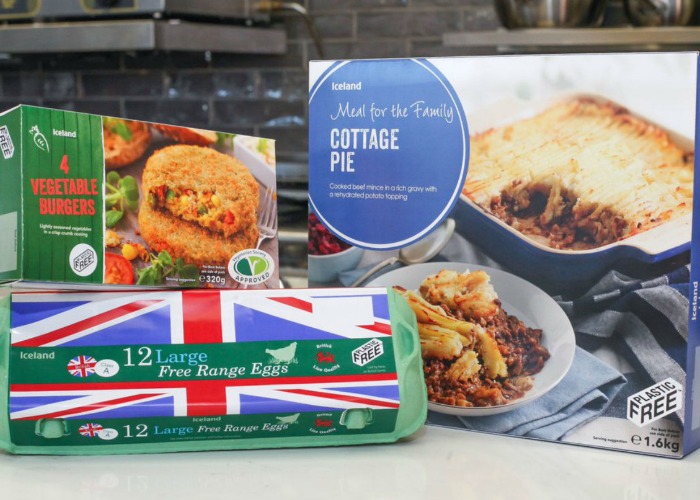New label helps you avoid plastic packaging

From today you can look out for a new label to help you avoid plastic packaging when doing your weekly food shop.
Ever since Blue Planet II showed us the devasting impact of plastic waste on marine life, many of us have been on a mission to cut the amount of plastic we use and throw out.
Now a new label has been launched to help you avoid excess plastic packaging when you are doing your supermarket shop.
The plastic-free ‘trust mark’ is being introduced at Iceland in the UK and the Dutch supermarket chain Ekoplaza. Tea manufacturer Teapigs will also be using the label. The campaign group behind the move hopes that more companies and retailers will adopt the label over the coming months.
“Our trust mark cuts through the confusion of symbols and labels and tells you just one thing – this packaging is plastic-free and therefore guilt-free,” says Sian Sutherland, co-founder of A Plastic Planet, the campaign group that has created the label.
“Finally, shoppers can be part of the solution, not the problem.”
The label can be found on the boxes of Iceland products:

The problem facing all of us when we are shopping is knowing exactly which products contain plastic. Beyond the obvious plastic wrappers, there are numerous other ways plastic may be hidden in food packaging with everything from baked beans to teabags potentially harbouring plastic.
The plastic-free label will tell you clearly that the product you are buying contains absolutely no plastic.
Iceland will be putting the label on own-brand plastic-free products this month, with items including eggs, cottage pie and vegetable burgers all carrying the label. The supermarket has also pledged to have no single-use plastic packaging on its products by 2023.
“With the grocery retail sector accounting for more than 40% of plastic packaging in the UK, it’s high time that Britain’s supermarkets came together to take a lead on this issue,” says Richard Walker, managing director of Iceland.
“I’m proud to lead a supermarket that is working with A Plastic Planet to realise a plastic-free future for food and drink retail.”
Plastic deposit scheme proposed for bottles
Plastic-free tea
You may be shocked to discover that the humble tea bag has plastic packaging, especially as most are sold in cardboard boxes. The problem is the tea bag itself which often contains polypropylene, a sealing plastic, that is used to stop the tea bag from falling apart.

Teapigs has no plastic in its packaging and is the first brand to sign up to the ‘plastic-free’ test mark.
“Our tea has always been plastic free and our clear inner bags (that keep the tea nice and fresh) are made from Natureflex which looks like plastic but is made from wood pulp,” Teapigs co-founder Louise Cheadle told the Telegraph.
“The trust mark will make it easy for consumers to make the right plastic-free choices.”
If you're a regular Iceland shopper, you could save money by signing up to their loyalty scheme - read more here. You could also cut down the cost of having your shop delivered.
Comments
Be the first to comment
Do you want to comment on this article? You need to be signed in for this feature